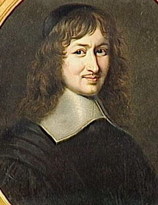
The fraudulent practises in the handling of accounts continued, as financiers were kept as long as they received special favours and aid from the government. Fouquet soon became wealthier than Mazarin. However, Mazarin was not able to interfere since he himself was involved in similar activities. Later, Mazarin was replaced by Jean-Baptiste Colbert.
Fouquet expected to become the head of government after the death of Mazarin. However, Louis XIV was suspicious of him. Louis XIV then stated that he would be the chief minister himself. Furthermore, Colbert often presented negative financial reports and deficits to the king. The king also despised Fouquet due to his extravagant lifestyle and purchase of the port of Belle-Île-en-Mer, where he intended to take refuge if things went wrong.
Fouquet also built an expensive château in Vaux-le-Vicomte, his estate. There, he gathered the famous artists in the country and opened his doors to the rich and famous. He also became a patron and collected the best pieces of art.
The king later went to Vaux and witnessed the grandeur of Fouquet’s lifestyle. In August 1661, Louis XIV was the guest of a fête, the splendour of which can be compared only to less than a handful in history. The king, however, had planned to end Fouquet’s activities but hesitated to do it in the open. Fouquet was soon persuaded to sell the position of procureur general and lost his protection.
Fouquet expected to become the head of government after the death of Mazarin. However, Louis XIV was suspicious of him. Louis XIV then stated that he would be the chief minister himself. Furthermore, Colbert often presented negative financial reports and deficits to the king. The king also despised Fouquet due to his extravagant lifestyle and purchase of the port of Belle-Île-en-Mer, where he intended to take refuge if things went wrong.
Fouquet also built an expensive château in Vaux-le-Vicomte, his estate. There, he gathered the famous artists in the country and opened his doors to the rich and famous. He also became a patron and collected the best pieces of art.
The king later went to Vaux and witnessed the grandeur of Fouquet’s lifestyle. In August 1661, Louis XIV was the guest of a fête, the splendour of which can be compared only to less than a handful in history. The king, however, had planned to end Fouquet’s activities but hesitated to do it in the open. Fouquet was soon persuaded to sell the position of procureur general and lost his protection.

 RSS Feed
RSS Feed